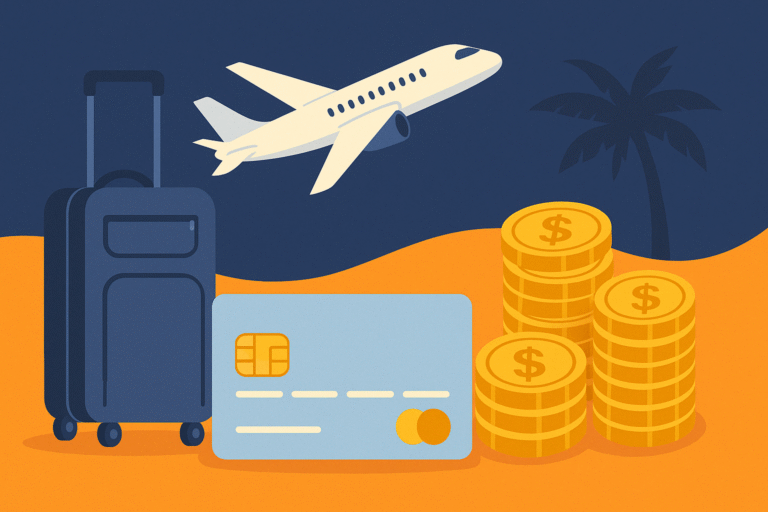
Money isn’t just about numbers. It’s about peace of mind.
It’s about being able to breathe when your car breaks down or when rent is due.
If you’ve ever felt stressed looking at your bank account or said, “I just can’t save,” you’re not alone. A lot of people feel this way, and it doesn’t mean you’re bad with money—it just means you were never shown how to build good money habits.
The good news? You can start today. And it doesn’t need to be hard or confusing. Just like brushing your teeth, smart money habits are small actions you do regularly. Over time, they build something strong and reliable—financial freedom.
Let’s talk, in simple and honest words, about how you can do that.
What Are Money Habits?
Money habits are the things you do regularly with your money—good or bad.
They can help you grow wealth, or they can make life harder.
For example:
- Always saving a part of your income = good money habit
- Spending your full paycheck the same day you get it = not-so-good habit
The trick is to build smart habits little by little, so they feel natural.
Why Most People Struggle With Money Habits?
Before we dive into the habits, let’s be real about something.
Many people were never taught how to manage money.
Maybe your parents lived paycheck to paycheck. Maybe you were told that talking about money is rude. Or maybe life just kept throwing bills and problems your way.
Whatever the reason, building new habits doesn’t mean you failed before—it means you’re growing now.
And that’s something to be proud of.
Smart Money Habits You Can Start Today
1. Track Your Spending—Without Judgment
The first step to changing anything is knowing what’s going on.
Start by writing down everything you spend for one week.
Use:
- A notebook
- A free app like Mint or Spendee
- Even a note on your phone
Don’t worry about “fixing” it yet. Just look at where your money goes. You might be surprised—those little coffee runs or random takeout orders add up fast.
This simple habit builds awareness. And awareness is powerful.
2. Pay Yourself First
As soon as money comes in—before rent, before groceries—put a little bit aside for you.
This could be:
- $5
- $50
- Or 10% of your paycheck
It’s called paying yourself first, and it’s a powerful money habit.
You’re saying: “I matter. My future matters.”
Even if it’s small, that savings will grow over time like a tiny tree.
3. Build a “No Shame” Emergency Fund
Imagine your phone breaks. Or your dog needs to go to the vet.
Without savings, these things become panic moments. With even a small emergency fund, they become manageable.
Start with a goal of $300. That’s it.
Put it in a separate account.
Label it: Emergency Only
And protect it like it’s sacred.
You don’t need a huge safety net—just something soft to land on.
4. Avoid Emotional Spending
We all do it.
Bad day? New hoodie.
Bored? Late-night food delivery.
Sad? Let’s scroll and buy something shiny.
Here’s a trick: Before buying, pause. Breathe. Ask yourself:
“Do I need this or just want it right now?”
This moment of pause can save you hundreds over the year.
5. Set Simple, Honest Goals
Goals don’t need to be big or fancy.
They just need to be yours.
Examples:
- Save $500 by the end of the year
- Pay off your credit card little by little
- Learn one new money skill this month
Write your goal down. Look at it every week.
When you hit it, celebrate. You’re training your brain to keep winning.
6. Use Cash or Prepaid Cards for Daily Expenses
Using physical money helps you feel your spending.
Try this:
- Each week, withdraw a set amount for food, coffee, or fun.
- When the money’s gone, that’s it for the week.
This helps you stay in control without needing to track every penny.
No shame. No guilt. Just limits that you set.
7. Learn One Thing About Money Each Month
You don’t need to become an expert. But curiosity pays.
Here are easy ways to start:
- Watch a YouTube video about budgeting
- Follow an Instagram page that talks about saving tips
- Read a short blog (like this one!)
Each small lesson adds up. Over a year, you’ll be amazed at how much you’ve learned.
Why These Money Habits Work
These habits are:
- Easy to start
- Don’t require a lot of money
- Make you feel more in control
They’re not about being perfect.
They’re about being better—one day at a time.
You’ll slowly feel less stress. You’ll have more space to breathe.
And that’s what financial freedom really means.







